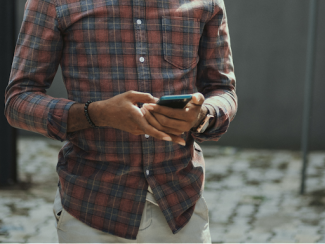
In 2003, scholar William A. Smith used the term “racial battle fatigue” to describe the experience of Black faculty and graduate students at predominantly white institutions, also known as PWIs. It gave a name to the experiences of those faced with systemic racism.
In 2020, Dr. André Brock, Jr. expanded on Smith’s definition. Traumatic anti-Black violence fills the news, social media, and the internet relentlessly.
Our phones and computers follow us everywhere, from our bedrooms and bathrooms to grocery stores and workplaces.
Because of the constant bombardment of anti-Black information, from subtle to explicit, it's taxing to process everything at once before acting. And though many of us experience this ongoing trauma at the same time, we’re often watching it on our screens in isolation.
But, despite the influence of colonial individualist norms, we are not alone. Doctors and researchers have explained how critical community can be for mental health, especially when experiencing anti-Black stress.
While trying to balance negative news with positive news, we actually can practice self-care while continuing to stay sociopolitically engaged.
Fighting for Black liberation is stressful in an anti-Black world. But when we share and learn with our loved ones instead of experiencing that alone, our health improves - not just as individuals, but as a strong collective.